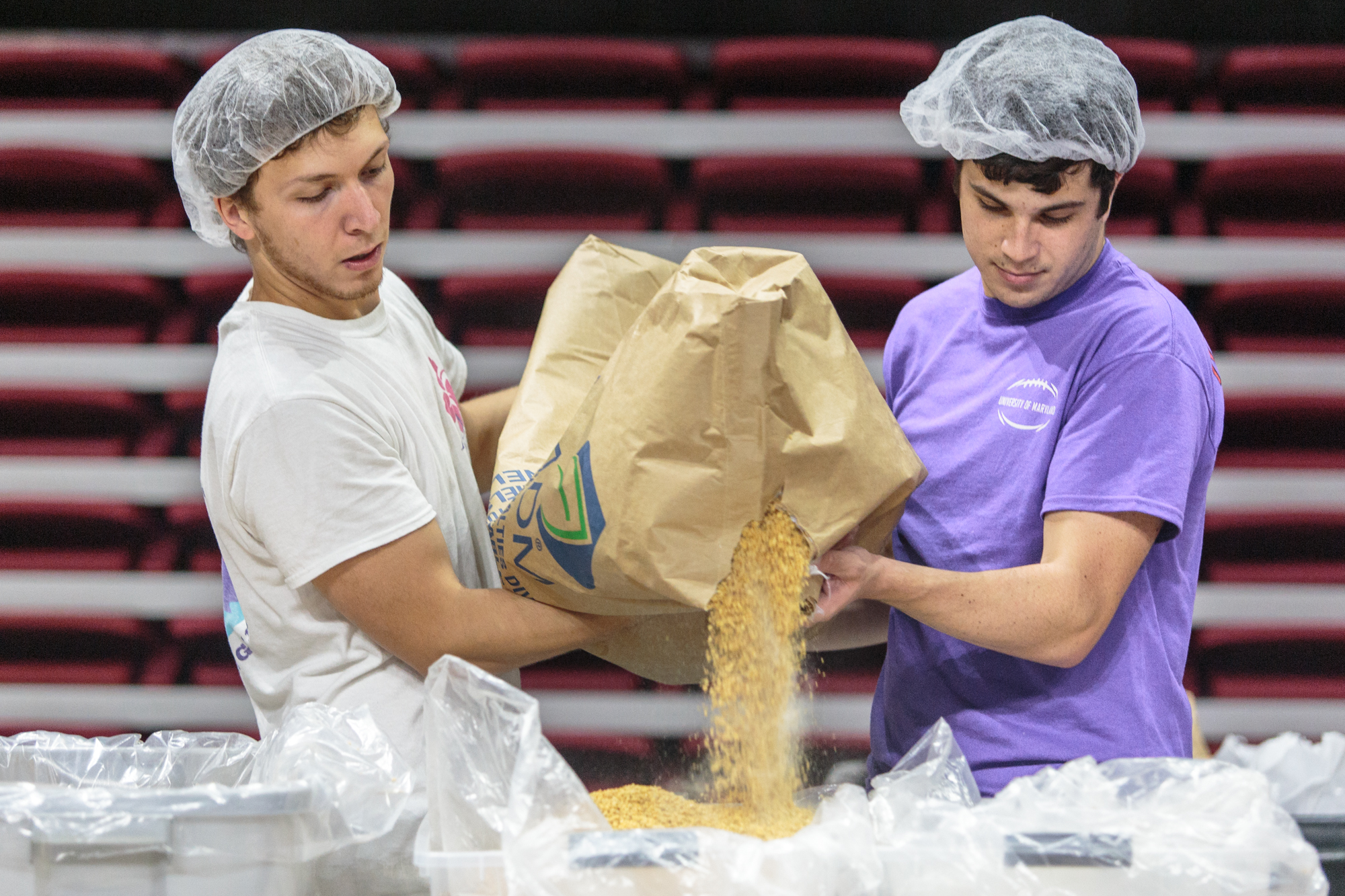When Joshua Turskey joined Terps Against Hunger the fall of his freshman year, there were only four students in the group dedicated to packaging meals for food banks and other partners in the Washington, D.C. area.
Since then, the group has grown to more than 200 members, said Turskey, the junior architecture major who now serves as Terps Against Hunger president, and Sunday the organization packaged its one millionth meal.
University President Wallace Loh, U.S. Rep. Chris Van Hollen and hundreds of students attended Terps Against Hungers’ homecoming service event in Xfinity Center, where volunteers packaged meals for more than 10 hours.
Terps Against Hunger aims to educate students on the issues of hunger, enlist them to come help pack meals and empower students to act on their own passions, Turskey said. He added that he was excited about the “great turnout” of students that the event brought together.
Loh and Van Hollen spoke at the service event, both discussing the university’s new “Do Good Initiative,” a $75 million effort to support student philanthropy and social innovation. The initiative will build on the efforts of the university’s Center for Philanthropy and Nonprofit Leadership and the “Do Good” Challenge, in which student groups compete for money to support their philanthropic work.
Terps Against Hunger won the “Do Good” Challenge last year.
As a congressman, Van Hollen said he had been fighting a political battle to maintain and expand the policies that fight food insecurity, but he stressed that everything can’t be done solely through the government.
“I’m very impressed with the spirit of community and making a difference for people around our area,” Van Hollen said. “We need to do our job at the federal level, but we can’t do it alone, and that’s why these volunteer efforts are so important because that’s really what it means to be a responsible citizen.”
In his speech, Loh also said students and community members are the ones who drive change.
“It’s about translating [students’] passion and their education into social impact and serving others, and I think that’s what democracy is all about,” Loh said. “It’s not only what the government does, it’s about what individual citizens do. Small acts of service put together is what makes America great.
Bob Grimm, the director of the Do Good Institute, said he saw many parallels between the work that he is trying to promote and the work that Terps Against Hunger does.
“You’re going to see more and more stories of success like Terps Against Hunger in the “Do Good” campus. That’s why we’re so excited to take the initial efforts and grow them exponentially,” he said. “A ‘Do Good’ campus is all about providing students with the resources, support, courses and education so they can make a huge impact on the cause that they’re passionate about.”
The university has been holding Do Good Challenges for five years, and Terps Against Hunger began when its founder, Jonathan Fix, received a seed fund from the competition two years ago, Grimm said. The organization used the money to run a pilot event where they packaged 6,000 meals, he added.
Junior public health science major Ophelia Imuze said the issue of hunger is important to her because she has seen its effects in her home country of Nigeria.
“It means a lot to me because where I come from, I know a lot of people don’t have food to eat,” Imuze said. “It’s a big deal that I can help out.
Many members of Greek life were also present at the event, and junior Isabella Kalender, Alpha Phi chapter president said Terps Against Hunger has played a major role in efforts on the campus to fight food insecurity.
“It’s so admirable that students are heading this fight,” the finance and marketing major said. “The people who run Terps Against Hunger do such a phenomenal job, and they’re very dedicated to the cause.”



